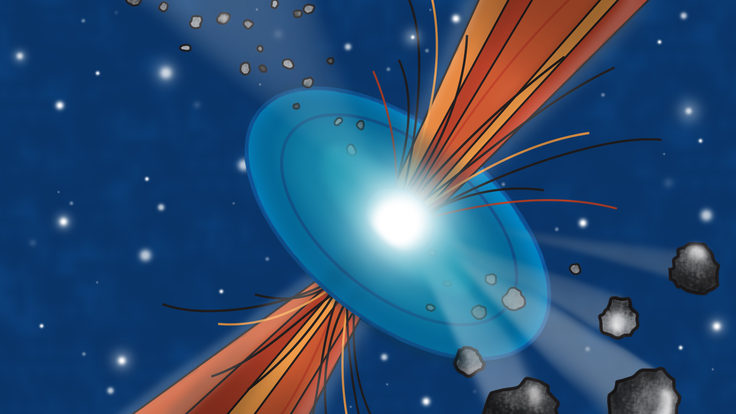Update: A video of Chu's nearly two-hour talk is now available on SLAC Today. Here are links to coverage of the talk in the Contra Costa Times and Palo Alto Online.
Speaking to a crowd of more than 800 this morning at SLAC National Accelerator Laboratory, Secretary of Energy Steven Chu urged researchers to confront what he called "the energy challenge."
"For the first time in history, science has shown humans altering the destiny of our planet in a meaningful way," he said. "We have to try to enlist some of the very best intellectual horsepower to deal with this."
In a wide-ranging speech that touched on worldwide emissions, climbing global temperatures, changing precipitation patterns, increasing atmospheric carbon dioxide concentrations, and the rising sea level, Chu demonstrated how the energy challenge cuts across many areas and is intensely tied to our economic prosperity.
"But there's reason for hope," he said. "Scientists by their very nature have to be very optimistic... We can fix this."
Pointing to historical examples of research easing global problems-including the invention of artificial fertilizer, which helped set off the so-called "green revolution"-Chu expressed his belief that science research would again come to the world's aid.
"It was scientific discoveries that enabled the world to feed itself," Chu said. Now, he continued, scientific discoveries can increase energy efficiency and develop improved means of generating clean energy.
"There are lots of really exciting things that people at SLAC can think about," he said. "Research can spur incredible intellectual achievement. And in the field of energy, I think we can do some really great science. A physicist or applied mathematician can really start to drool at these problems."
Chu, who received the 1997 Nobel Prize in Physics for his work in cooling and trapping atoms with laser light, is a former chair of the Stanford University physics department. Prior to becoming Secretary of Energy, he was a professor of physics and molecular and cellular biology at the University of California, Berkeley, and the director of the Lawrence Berkeley National Laboratory.







